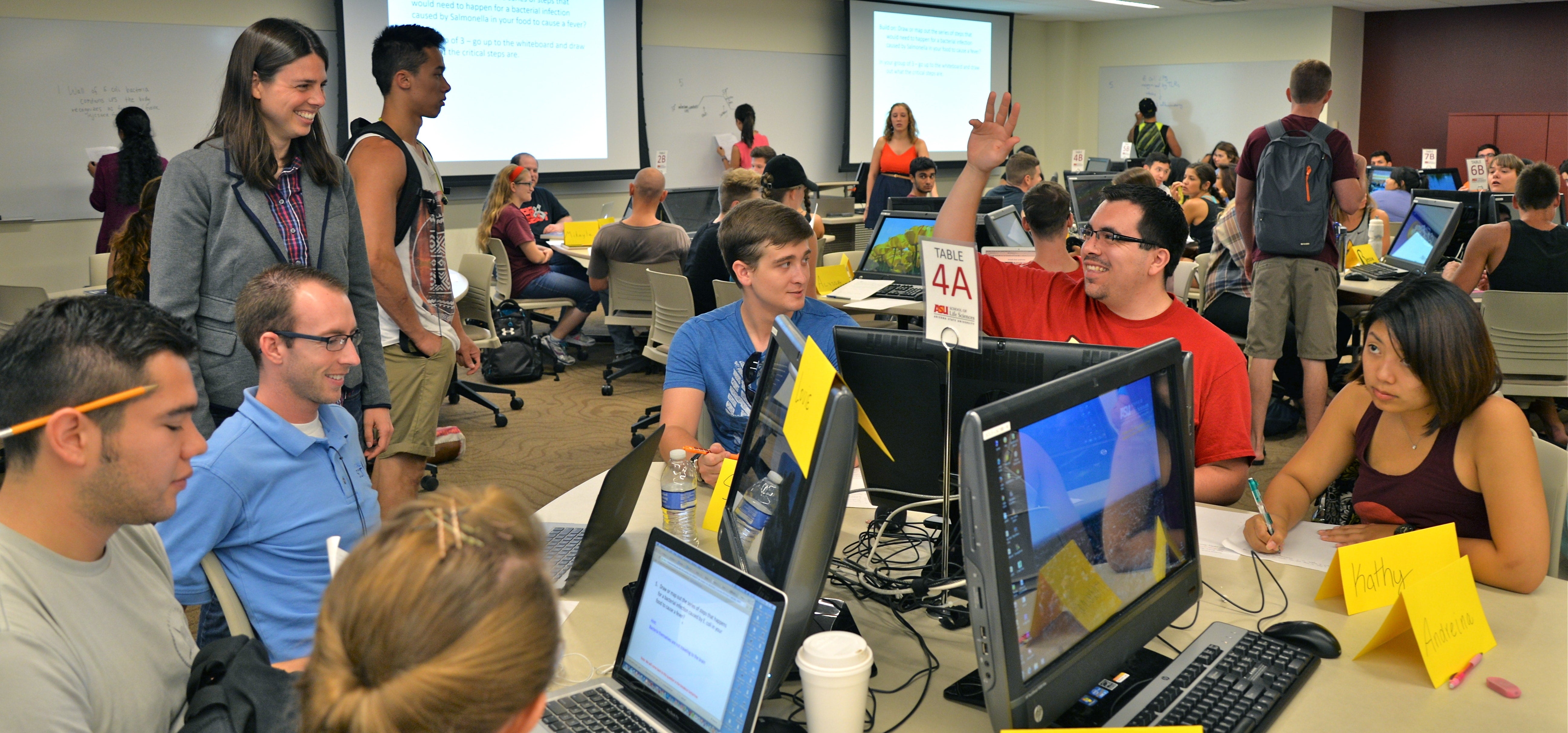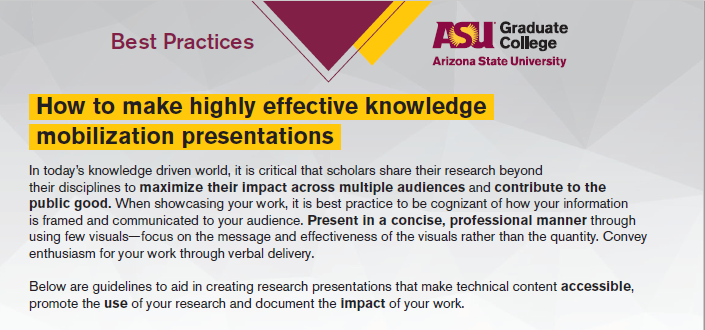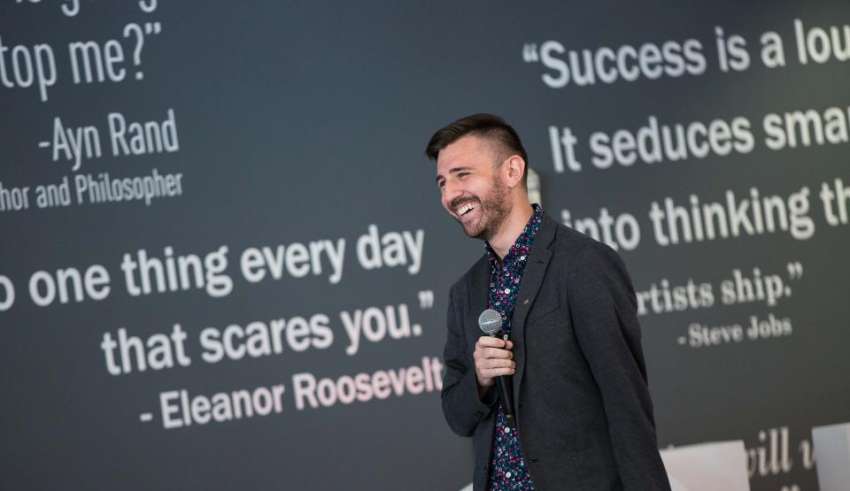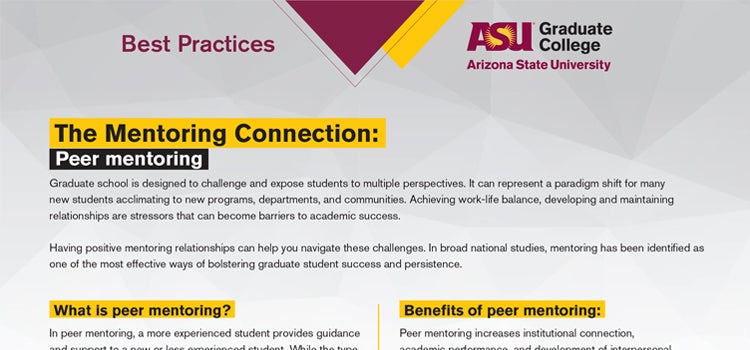
Mentoring matters: Guiding doctoral students from candidacy to completion

How to practice different forms of gratefulness
Best Practice: Graduate College Dashboard Questions
Navigating Classroom Conflict: Cultural Insensitivity
At Arizona State University, we pride ourselves on being an institution diverse in population and inclusive to all. Our aim is to provide a forum for the intellectual, personal, social and ethical development of our students.
Because we are an institution that serves students from many backgrounds, beliefs and value systems, it’s important to know how to appropriately and safely de-escalate conflicts in the classroom and advocate for the emotional wellbeing and safety of all students.

Best practice: Developing resilience and overcoming imposter syndrome
In today's academic and career environments, graduate students face a great deal of stress, both from external sources (faculty committees, academic chairs, lab supervisors) and internal ones (the pressure to achieve, need to live up to expectations). Under this barrage of expectations, nearly every graduate student will face what’s called imposter syndrome at some point in their academic career.
Best practice: Maintaining academic and research integrity at ASU
As an ASU graduate student, it’s your responsibility to help protect yourself and the ASU community from academic and research integrity violations. But this can be challenging, as standards for what counts as common knowledge, conventions of collaboration and norms for proper crediting of sources can vary from educational system to educational system around the world.
Best practice: How to establish a concurrent Master's degree proposal
Concurrent programs are a way for units to link two graduate programs that may not otherwise be connected, offering students the opportunity to earn two degrees in a shorter amount of time. Concurrent programs are a way for units to link two graduate programs that may not otherwise be connected, offering students the opportunity to earn two degrees in a shorter amount of time.
Best Practice: 9 tips for getting the most out of the iPOS
The Interactive Plan of Study (iPOS) allows graduate students to plan and navigate their degree program through graduation, including the selection of their committee. Graduate advisors and faculty can help students progress to program completion by using the iPOS for monitoring student progress and communication. This best practice guide provides nine tips for getting the most out of the iPOS system.
Best Practice: How to create an International Accelerated Degree Program (IADP)
Best Practice: Making the peer mentoring connection
Graduate school is designed to challenge and expose students to multiple perspectives. It can represent a paradigm shift for many new students acclimating to new programs, departments, and communities. Achieving work-life balance, developing and maintaining relationships are stressors that can become barriers to academic success. Having positive mentoring relationships can help you navigate these challenges.
Preparing Effective Graduate Program Handbooks
Program handbooks help students understand their program’s mission, visions, requirements and expectations, as well as offer thoughtful and inclusive resources for being a graduate stuudent at ASU. The Graduate College requires all programs to create handbooks and distribute them to students upon enrollment. Handbooks should be made accessible and readily available to download from the program or department websites.
10 best practices for graduate student wellbeing
Graduate school necessarily stretches us. When we strive to achieve experiences, content and context expertise, and professional mastery, we rely on every part of our intellectual, emotional, physical and purposeful self. Stretching in these ways is inherently stressful, and according to the National College Health Assessment (NCHA) graduate students report stress, feeling exhausted, and anxiety to be factors that can surface in different ways than they did in undergrad.
The Mentoring Connection: Peer mentoring

Read up on some of the ways you can care for yourself through mentorship.

The academic job interview: Three do’s and don’ts when preparing for a teaching demonstration
By Barbi Honeycutt
Most faculty job interviews include a research presentation and a teaching demonstration as part of the on-campus interview process. Postdoctoral scholars are experts in research. They know how to design experiments, test ideas and hypotheses, and analyze the findings. But while a postdoc may feel confident and prepared for a research presentation, the same person may not feel as prepared for the teaching demonstration.

The academic job interview: Three do’s and don’ts when preparing for a teaching demonstration
By Barbi Honeycutt
Most faculty job interviews include a research presentation and a teaching demonstration as part of the on-campus interview process. Postdoctoral scholars are experts in research. They know how to design experiments, test ideas and hypotheses, and analyze the findings. But while a postdoc may feel confident and prepared for a research presentation, the same person may not feel as prepared for the teaching demonstration.
Intentional conversations
Mentoring is a relationship entailing formal or informal processes whereby a mentor provides intentional guidance, motivation, and encouragement. Mentors also share knowledge, experiences, and perspectives to empower the mentee in the advancement of specific goals that improve their lives and careers. Mentorship allows both mentor and mentee to build networks of resources, develop best practices, and sustain connections for lifelong learning.
Goal setting
Mentoring is a relationship entailing formal or informal processes whereby a mentor provides intentional guidance, motivation, and encouragement. Mentors also share knowledge, experiences, and perspectives to empower the mentee in the advancement of specific goals that improve their lives and careers. Mentorship allows both mentor and mentee to build networks of resources, develop best practices, and sustina connections for lifelong learning.
Creating a mentoring agreement
Mentoring is a relationship entailing formal or informal processes whereby a mentor provides intentional guidance, motivation, and encouragement. Mentors also share knowledge, experiences, and perspectives to empower the mentee in the advancement of specific goals that improve their lives and careers. Mentorship allows both mentor and mentee to build networks of resources, develop best practices and sustain connections for lifelong learning.

How to make highly effective knowledge mobilization presentations
It is critical that scholars share their research beyond their disciplines.

Three traps that could ruin your job interview
Making a good impression at a job interview can be tricky. You should definintely show up on time, dress appropriately, and research the company. But those things are all givens.
Once you are in the actual interview, there are three traps that sometimes trip people and limit their chances of success.
Trap #1: Don’t just sell yourself

Three traps that could ruin your job interview
Making a good impression at a job interview can be tricky. You should definintely show up on time, dress appropriately, and research the company. But those things are all givens.
Once you are in the actual interview, there are three traps that sometimes trip people and limit their chances of success.
Trap #1: Don’t just sell yourself
Best practices: 10 tips for curating your digital portfolio
Research shows that a digital portfolio is a valuable tool to help you better track your academic progress and more favorably position yourself for post-graduate success.
A digital portfolio is an electronic collection of evidence over time where you can demonstrate critical thinking and problem-solving skills, articulate thoughts and ideas, highlight professionalism, engage a broader audience and provide a well-rounded picture of yourself as a scholar/future employee.

Scientific Presentations: When Public Speaking is Unavoidable
Public speaking is stressful. In fact, researchers use public speaking to induce stress in reticent humans (known as the trier social stress test). Thankfully, there are a wealth of strategies to keep audiences engaged and attenuate some of the unpleasantness of public speaking.

Scientific presentations: When public speaking is unavoidable
Public speaking is stressful. In fact, researchers use public speaking to induce stress in reticent humans (known as the trier social stress test). Thankfully, there are a wealth of strategies to keep audiences engaged and attenuate some of the unpleasantness of public speaking.

The Mentoring Connection: Peer mentoring
Mentoring has been identified as one of the most effective ways of bolstering graduate student success and persistence.